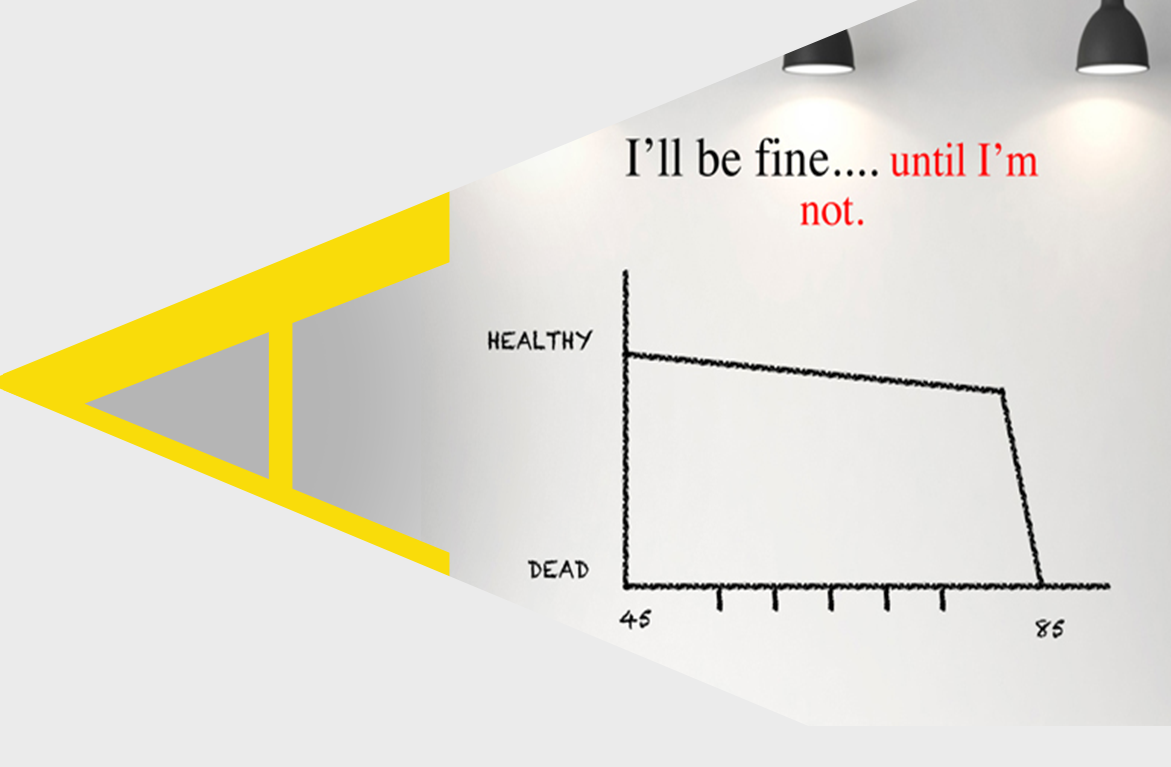04.06.2017
Trends Magazine: Aging is the most important marketing trend
Note: This Article has been translated from its original form in the Dutch language. The original article can be viewed HERE
Companies and their marketers are obsessed by millennials, and though Baby Boomers represent a huge opportunity, says the American agency leader and author, Peter Hubbell. “Businesses are not considering the marketing value of baby boomers.”
It was a remarkable twist to the latest Trends Day of the Union of Belgian Advertisers (UBA). While most speakers are expected to deepen in subjects such as big data, content marketing or Tomorrowland, Peter Hubbell came to talk about aging. The point that the ad agency founder and author of books like The Old Rush and Getting Better With Age made, however, was one of the most pertinent of the congress. Baby boomers, born in the decades after World War II, are many and they are the wealthiest generation in the history of our planet. But if you read a lot of marketing and media plans, you’ll soon notice that most are aiming at the age range 18 to 44.
“According to Nielsen research, less than 5 percent of all marketing is targeted to baby boomers,” Hubbell said in an interview. “This is not a fancy technological trend, but an important social and demographic evolution,” he says. “By 2050, half the world’s population will be people over 65 years old. In some parts of Europe the number of wheelchairs exceeds the number of strollers. It’s also a rich target; in the United States, many over-65s still have jobs and are now receiving mandatory withdrawals from their retirement savings accounts. The value of the so-called longevity economy (all economic activity driven by the needs of people over 50, editor’s note ) in the United States is 7.1 trillion dollars. That is more than any other country’s total economy, with the exception of China. It also exceeds the total economies of Brazil, Russia and India combined ($6.3 trillion).”
Hubbell sees some useful reasons why many companies ignore the economic value of the baby boomers. The first is simply inertia. “Doing things as we have always done, is a source of comfort. Marketing to age is difficult for many companies simply because they’ve never done it before. Just ignoring this opportunity is easier than doing something about it.” The second reason is that many marketers believe that a younger consumer is more valuable than an older consumer, which is based on the belief that winning a young consumer today ensures a lifetime of loyalty to your brand. Hubbell encourages businesses to challenge their long-held assumptions about loyalty. “Many marketers believe too strongly that a loyal customer will always be a loyal customer. We live in a day and age of transactional transparency. That vision of loyalty is dead. The young customer you win this week, will need to be won again next week.”
“Marketing must first formulate positive solutions and focus less on what is annoying to be old”
That brings Hubbell to his third major reason for the underestimation of the baby boomers and that other much-discussed generation, the Millennials, or people between 20 and 36 years. “Millennials are a large attractive group with enormous potential, but marketers for the first time in my career (Hubbell is 57, ed ) haven’t done their homework well. They invest a lot of time to understand that group, but their eyes should open. 75 percent of millennials can only afford to buy what they need, not what they want, and in addition, they are much less focused on buying as they prefer to access products and services vs. owning (think Uber in lieu of car ownership).
Millennials are the future of marketing, but the future isn’t here yet. It will take fifteen years for many of them to hit their peak earning and purchasing potential. When I confront industry gatherings and ask what they’re going to do for the next fifteen years, the question is usually followed by great silence. ”
Hubbell made his point concretely recently in an article for Forbes in which he compared investing in millennials with investment in emerging markets. “A portfolio manager on Wall Street would never think of investing 100% of funds in emerging markets as it’s too risky. Instead, they usually diversify the portfolio to maximize profits and reduce risk. By comparison. marketers should also diversify their efforts by marketing to several generational cohorts to maximize sales and brand share.”
Peter Hubbell’s ad agency, BoomAgers works on brands from Procter & Gamble, including the female incontinence brand, Always Discreet. Hubbell cites a good example of how brands can broaden their focus to seniors. “P&G found that the number of women with incontinence was growing, while the number of women menstruating was declining. Always did its demographic homework and launched an incontinence product that has great promise.” Hubbell often remarks, ”To understand people of age, you have to understand aging. Aging is more than biology, it’s also psychology, and the psychology is irrational. You will find them saying, ‘These are the best years of my life and I’m actually getting better with age.’ Irrational because the rational side of aging, after all, is less fun, therefore, the cohort believes with all their might that they are getting better with age, and they act accordingly. Marketing should respond to them in the same way, they should formulate positive solutions and focus less on the negative aspects of growing old i.e. the broken things that need to be fixed.”,
Even in their 80s, the baby boomers will be a still large group. How marketers react will depend heavily on the public debate, says Hubbell. “We urgently need to work on how we will finance the rising costs of care for older people. How do we do that without burdening the younger generations? That question urgently needs to be on the agenda to define how marketers will deal with baby boomers in the next decade. Because it’s such a complex social problem, the aging of our world is now the most important marketing trend.”
Read more articles



04.07.2017
I’ll Be Fine…Until I’m Not
Americans over 50 have a completely irrational view of their own aging. According to the Pew Research Foundation, the majority of Boomers believe that old age starts at 72…just seven years shy of the average mortality age of 79! The eternal…
